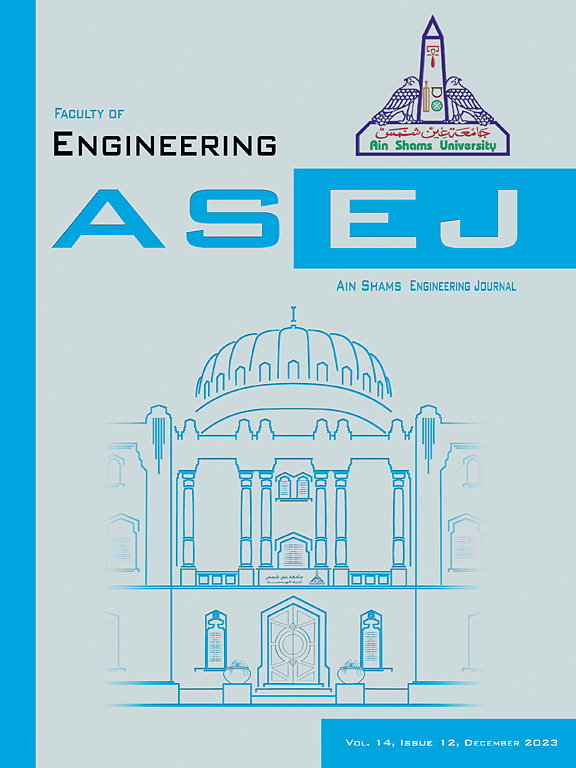使用三嵌段共聚物合成高有序介孔硅酸铝单片及其在水净化中的应用
IF 6
2区 工程技术
Q1 ENGINEERING, MULTIDISCIPLINARY
引用次数: 0
摘要
介孔硅酸铝颗粒(MASP)具有高表面积和特殊的结构特性,可有效吸附饮用水中的特定污染物。我们通过 SEM、TEM、Mapping-EDX 和 BET 分析对 MASP 的表面特性进行了研究。通过使用批量吸附法,本研究试图考察 MASP 吸附剂在不同 pH 值、时间间隔、吸附剂剂量和温度下对镉(II)离子的吸附行为。在 pH 值为 6.5、温度为 25 °C、吸附剂剂量为 0.1 克、吸附时间为 5 小时的条件下,MASP 对镉(II)离子的最大吸附能力为 16.5 毫克/克。伪一阶模型很好地描述了吸收过程。发现最佳拟合等温线是 Langmuir 和 Redlich-Peterson 等温线。通过热力学分析,该方法具有放热性和自发性。MASP 在十多个再生周期中表现出耐久性和可重复使用性。本文章由计算机程序翻译,如有差异,请以英文原文为准。
Synthesis of high-ordered mesoporous aluminosilica monoliths using triblock copolymer and application in the water purification
Mesoporous aluminosilica particulates (MASP) offer a high surface area and specific structural properties that make them effective for adsorbing specific contaminants from drinking water. The MASP’s surface characteristics were studied by SEM, TEM, Mapping-EDX, and BET analysis. Through the use of a batch adsorption approach, this work sought to examine the adsorption behavior of MASP sorbent towards Cd(II) ions at different pH values, time intervals, sorbent doses, and temperatures. MASP’s maximal capacity for Cd(II) ions uptake was 16.5 mg/g at pH 6.5, 25 °C, 0.1 g dose, and 5 h of sorption time. The pseudo-first-order model provided a good description of the uptake process. The best-fitting isotherm was found to be the Langmuir and Redlich–Peterson isotherm. The method came out to be exothermic and spontaneous by thermodynamic analysis. MASP demonstrates durability and reusability during over ten regeneration cycles.
求助全文
通过发布文献求助,成功后即可免费获取论文全文。
去求助
来源期刊

Ain Shams Engineering Journal
Engineering-General Engineering
CiteScore
10.80
自引率
13.30%
发文量
441
审稿时长
49 weeks
期刊介绍:
in Shams Engineering Journal is an international journal devoted to publication of peer reviewed original high-quality research papers and review papers in both traditional topics and those of emerging science and technology. Areas of both theoretical and fundamental interest as well as those concerning industrial applications, emerging instrumental techniques and those which have some practical application to an aspect of human endeavor, such as the preservation of the environment, health, waste disposal are welcome. The overall focus is on original and rigorous scientific research results which have generic significance.
Ain Shams Engineering Journal focuses upon aspects of mechanical engineering, electrical engineering, civil engineering, chemical engineering, petroleum engineering, environmental engineering, architectural and urban planning engineering. Papers in which knowledge from other disciplines is integrated with engineering are especially welcome like nanotechnology, material sciences, and computational methods as well as applied basic sciences: engineering mathematics, physics and chemistry.
 求助内容:
求助内容: 应助结果提醒方式:
应助结果提醒方式:


